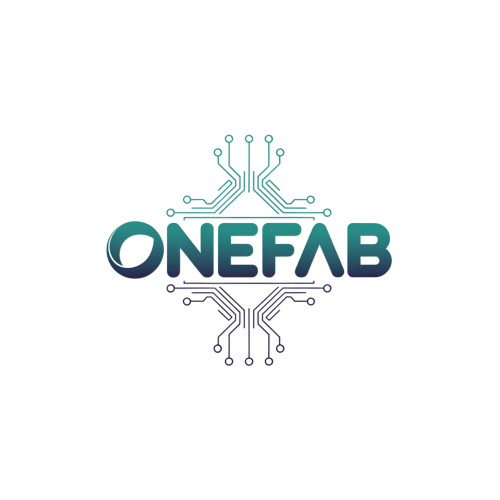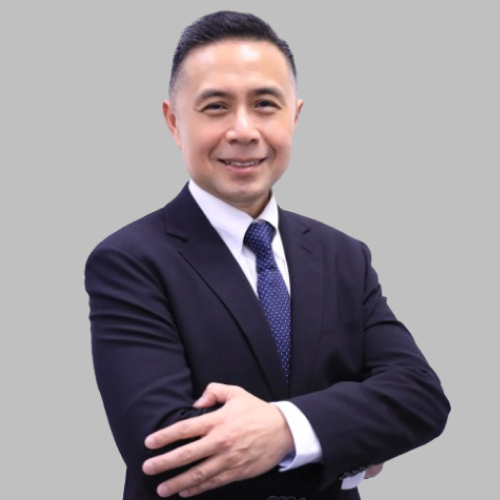2-3 December 2025
Tokyo
22-23 October 2025 - Singapore
08:00 – 09:00
Registration & Networking Coffee
09:00 – 09:10
Opening Remarks
Welcome Address by I.S.I.G. and Summit Overview: Key Themes & Objectives
09:15 – 09:40
Keynote: Powering the Age of AI – A Specialty Foundry’s Perspective on Artificial Intelligence
Artificial Intelligence is reshaping the semiconductor landscape—not only as a transformative force within fabs but also as a driver of global computing innovation.
Internally, AI is revolutionizing fab operations: enabling intelligent automation, driving yield enhancement, reducing waste and accelerating R&D.
Externally, the impact of semiconductor technologies on AI is even more profound. While leading-edge nodes play the key role in scaling AI performance, More-than-Moore technologies are essential for enabling low-power, high-efficiency computing at the edge, for connecting embodied AI with the real world, and ultimately for creating a path towards sustainable datacenter growth. This keynote will spotlight the critical contribution of More-than-Moore process technologies in powering the Age of AI, from lowest-power in-memory computing at the very edge to sustainable large-scale computing at the cloud.

Jörg Doblaski
X-FAB
As the Chief Technology Officer of the X-FAB foundry group, Jörg Doblaski is responsible for the development of X-FABs modular CMOS, SOI and WBG processes, targeting automotive, industrial and medical applications. Beside the development of the process technologies, this also includes design kit development, design enablement and customer support as well as prototyping. Jörg joined X-FAB in 2004 and served in different engineering- and engineering management positions before he became the group CTO in 2020. He holds a diploma degree in Electrical Engineering and Information Technology from Technical University of Ilmenau, Germany.
Company Profile
X-FAB is one of the world’s leading specialty foundry groups for analog/mixed-signal semiconductor technologies with a clear focus on automotive, industrial, and medical applications. As a pure-play foundry, X-FAB provides manufacturing and design support services to customers that design analog/mixed-signal integrated circuits (ICs) and other semiconductor devices for use in their own products or the products of their customers. Its customers worldwide benefit from the highest quality standards, manufacturing excellence and innovative solutions by using X-FAB’s modular CMOS and SOI processes in geometries ranging from 1.0 µm to 110 nm, and its special micro-electro-mechanical systems (MEMS) processes. X-FAB is also the first pure-play foundry to provide comprehensive processing technologies for the wide-bandgap materials silicon carbide (SiC) and gallium nitride (GaN). The GaN-on-Si wafers are manufactured in its modern 8” fab in Dresden, Germany, and SiC wafers in the 6” fab in Lubbock, Texas, USA. X-FAB runs six production facilities in Germany, France, Malaysia and the U.S. The company employs about 4,200 people worldwide.

09:45 – 10:05
Keynote: Benchmarking What Matters: Driving Fab Excellence Through Data-Driven Comparison
Benchmarking has long been a central practice in semiconductor manufacturing, yet many approaches rely on generalized metrics or incomplete comparisons that obscure the true levers of fab performance. As fabs navigate escalating technology complexity, rising capital intensity, and increasingly variable customer demands, a more rigorous and data-driven benchmarking framework is required.
This presentation will outline a structured methodology for benchmarking semiconductor fabs that emphasizes metrics most directly linked to operational excellence — including yield, cycle time, equipment effectiveness, and cost efficiency. Particular attention will be given to the interdependencies among these metrics, such as the coupling of yield and cycle time, and the influence on fab performance.
Key discussion points will include:
• Methodologies for designing benchmarking frameworks applicable across diverse fab sizes and technology portfolios.
• The importance of coupling and contextualizing KPIs to avoid misleading conclusions.
• Insights from fab case studies demonstrating how targeted benchmarking initiatives have revealed hidden inefficiencies and enabled measurable improvements.
• Practical pathways for translating benchmarking insights into sustainable competitive advantage.
By advancing from descriptive comparisons to analytically grounded benchmarking, fabs can move beyond performance reporting to develop actionable strategies that enhance resilience, efficiency, and differentiation in a highly competitive industry.

Ariel Meyuhas
MAX I.E.G.
At the helm of The MAX Group, Ariel brings over 25 years of experience in the semiconductor industry, working closely with leading Frontend Fabs and Backend OSATs. Known for his vision, innovation, and strong business relationships, he excels in leading teams with positive energy and passion. His expertise lies in driving operational turnarounds and transformative strategies for semiconductor companies, consistently delivering significant financial returns for clients. He is committed to excellence in every aspect of his work.
Company Profile
We are MAX, for over two decades we have been creating faster and smarter global operations!
Our business philosophy and our key to success are founded on never taking your business for granted and always following you every step of the journey where everything happens, sharing responsibility for any outcomes. Our expert teams will work in perfect synergy with you, zealously improving your bottom line. Clients credit us for accelerating their factories’ path for demonstrating world-class performance results – higher productivity and output, shortened Cycle Times, and reduced Operational Costs. As tough as the challenge may be, we will bring skills and cutting-edge tools to help you succeed.
The MAX Group is a leading global consulting firm with special expertise in Benchmarking and Operational Improvements in the Semiconductor industry. While primarily focusing on the Semiconductors and Electronics industries, we are proudly serving our Clients operating in wide variety of industrial spaces including Automotive, Aerospace, Bio-Medical and more.
Company Products & Services
We provide services ranging from Manufacturing Efficiency & Productivity Improvements to Management Consulting and Organizational Transformations, M&A, New Facility Design & Build and IT Consulting. The MAX Group has over two decades of experience as change agents improving manufacturing operations from startup phase to a mature factory. Exposure to world-wide organizations and our multi-national professional talent enabled us to develop a unique range of operational solutions that help your business MAXimize profit.

10:10 – 10:35
Keynote (Yield): Optimizing Yield at Scale Using Digital Twins
As AI compute demand accelerates, semiconductor manufacturing faces unprecedented pressure to deliver high-yield, cost-effective chips at scale. Traditional manual yield tuning struggles to manage the complexity of advanced nodes such as Intel’s 18A. This talk explores how Intel leverages a comprehensive AI/ML-driven approach encompassing Design-Technology Co-Optimization (DTCO), advanced process control, and yield & process analysis to transform yield optimization.
By integrating digital twins of facilities, equipment, process, and logistics with real-time factory automation data, Intel simulates complex fab operations to proactively detect and prevent yield-impacting issues. Advanced AI techniques identify critical correlations across hierarchical data levels from wafer to die enabling rapid root cause analysis and accelerating yield feedback loops. Turning vast amounts of data into actionable insights requires not only sophisticated algorithms but also deep manufacturing expertise and disciplined execution. Leveraging decades of manufacturing excellence and breakthrough innovations like 18A PowerVia technology, Intel has developed a scalable framework that drives faster innovation , cost control, and robust yield performance to meet the surging demand of AI compute.
Attendees will gain a clear understanding of the complexities inherent in advanced process nodes and how evolving data-driven methods such as AI/ML and digital twin-based simulations are essential to managing these challenges. These approaches are becoming increasingly critical in today’s AI-driven semiconductor manufacturing landscape.

Prashanth Aprameyan
Intel Foundry
Prashanth Aprameyan is a visionary technology and business leader at Intel, currently serving as the General Manager for Intel 18A and Intel 3 Silicon Business Lines. With over two decades of experience spanning advanced semiconductor development, chip design, and strategic business operations, Prashanth stands at the forefront of innovation in the global foundry ecosystem.
He leads Intel’s most cutting-edge silicon programs, driving everything from technology inputs and product roadmaps to competitive intelligence and go-to-market strategy. His leadership was instrumental in defining the 14A-E technology node, positioning it as a formidable offering in the competitive foundry landscape.
Prashanth’s career journey includes pivotal roles in SOC architecture, ASIC solutions, and custom silicon development across high-performance computing, AI, and networking. Prior to his current role at Intel, he led NAND circuit verification at Micron, delivering multiple successful tape-outs and pioneering internal design capabilities.
He began his career at Intel in 1998 as a circuit designer, contributing to landmark CPU designs including Pentium III, Pentium 4, and Cedarmill, and later led post-silicon debug efforts.
Prashanth holds an M.S. in Electrical and Computer Engineering from Virginia Tech and a B.S. in Electrical and Electronics Engineering from National Institute of Technology, Karnataka, India.
Company Profile
Intel’s systems foundry approach offers full-stack optimization from the factory network to software. Intel and its ecosystem empower customers to innovate across the entire system through continuous technology improvements, reference designs and new standards. Intel Foundry is an independent foundry business that meets our customers’ unique product needs, including our industry-leading sort and test capabilities. Whether front-end or back-end design is needed, when integrated with our foundry co-optimized development kits based on industry-standard tools and flows and powerful silicon IPs, the result is true innovation.

10:35 – 11:35
Networking Coffee Break & Business Meetings
11:40 – 12:25
PANEL (Yield): AI & Smart Automation for Yield Breakthroughs

Moderator
Chun Sheng Tan
Malaysia Semiconductor Industry Association (MSIA)


Panelist
Sim Cik Goh
Qualcomm Technologies
Mr. Goh SimCik leads Fab Operations at RF360 Singapore, overseeing the production of advanced front-end filters for Qualcomm. With over 20 years of experience in the passive components and semiconductor industry—including more than a decade in China, Malaysia, and Germany—he brings deep global expertise in manufacturing and operations. Prior to Qualcomm, he managed multi-site operations across Asia and Europe as GM and VP of TDK Electronics focused on High Voltage Contactors and Arrestors.
Company Profile
Qualcomm is the world’s leading wireless technology innovator and the driving force behind the development, launch, and expansion of 5G. When we connected the phone to the internet, the mobile revolution was born. Today, our foundational technologies enable the mobile ecosystem and are found in every 3G, 4G and 5G smartphone. We bring the benefits of mobile to new industries, including automotive, the internet of things, and computing, and are leading the way to a world where everything and everyone can communicate and interact seamlessly.


Panelist
Lip Wee Ho
Micron Technology
Mr. Lip Wee Ho serves as the Vice President of Advanced Technologies Singapore (ADTS) at Micron Technology. In his role, Lip Wee is responsible for overseeing the development and implementation of advanced technology solutions that drive Micron’s innovation and growth in the semiconductor industry, with a focus on NAND technology. Lip Wee began his career with Micron (formerly TECH Semiconductor) in 1993. Over the course of his career, Lip Wee took on increasing leadership responsibilities across various departments, such as Process Integration, Manufacturing and Process Engineering.
Company Profile
Micron is a world leader in innovative memory solutions that transform how the world uses information. For over 40 years, our company has been instrumental to the world’s most significant technology advancements, delivering optimal memory and storage systems for a broad range of applications.


Panelist
Patrick Hirt
AP&S International
Started as a Product Manager and later responsible as Director Sales, Patrick Hirt has over thirteen years of experience in ICT network solutions, building automation and connection technology for PCBs and devices. With a passion for bringing complex, innovative and customer-oriented solutions to the market, he is now responsible for the international Business of wet process equipment at AP&S International. AP&S offers the complete range from single wafer process systems to wet benches for batch processes as well as Fab-Logistic Tools. This wide range enables AP&S to meet the needs of its customers and to respond to their individual requirements.
Company Profile
For over 20 years, we have been supplying high-performance wet process equipment for the surface treatment of wafers to the world’s leading semiconductor manufacturers. Our modular product range is perfectly tailored to the needs of the semiconductor industry, whether standard wet process equipment or a customized solution is required.
Chemical wet processes are our passion. As a leading supplier for the semiconductor, MEMS and microelectronics industry, we offer wet process equipment for batch and single wafer processes as well as process supporting equipment!
Far-sighted, customer-oriented, innovative and committed to continuous progress – this is AP&S and its wet process equipment. At home in the semiconductor industry worldwide, we help shape the future of semiconductor production!
Company Products & Services
Efficient wet process solutions for your semiconductor production. Whether you need a standard system or a customized wet process solution: Our modular product range is perfectly tailored to your needs!
AP&S offers the complete range of wet process equipment from single wafer systems to wet benches for batch processes as well as fab logistics equipment.
The AP&S product range includes manual, semi-automatic and fully automatic wet process solutions for the semiconductor, MEMS and microstructuring industries as well as for the R&D sector. Among others, AP&S equipment covers the following wet processes: cleaning, etching, metal etching, PR stripping, electroless metal deposition, lift-off process, drying, developing and others.
We offer wet process equipment for batch processes as well as for single wafer processing and equipment for ensuring cleanliness and maximum productivity in semiconductor production such as FOUP, SMIF and box cleaners as well as various chemical management systems. AP&S equipment is used in front-end-of-line (FEOL) and back-end-of-line (BEOL) processes.


Panelist
Skyworks Solutions
Chor Shu Cheng is a seasoned engineering professional with over 25 years of expertise in Yield and Process Integration. As Yield Director at Skyworks, he lead cross-functional teams to drive innovation and enhance process performance, focusing on yield improvement and integration of BAW and SAW filters. Cheng is particularly interested in learning how others are leveraging AI to advance yield, reliability, and operational excellence.
Company Profile
Skyworks Solutions, Inc. is empowering the wireless networking revolution. Our highly innovative analog semiconductors are connecting people, places and things spanning a number of new and previously unimagined applications within the automotive, broadband, cellular infrastructure, connected home, industrial, medical, military, smartphone, tablet and wearable markets.
Skyworks is a global company with engineering, marketing, operations, sales and support facilities located throughout Asia, Europe and North America.
Company Products & Services
Skyworks products are used in aerospace, automotive, broadband, cellular infrastructure, connected home, defense, entertainment and gaming, industrial, medical, military, smartphone, tablet, and wearable markets.

12:30 – 13:30
Networking Buffet Lunch
13:35 – 13:50
Presentation: Towards Cycle-Time Excellence: Recent Advances in AI Approaches
This talk introduces Lean Automation for Cycle-Time Wins.In today’s semiconductor industry, cycle time is a decisive lever for competitiveness and market leadership. We explore how lean manufacturing principles, when combined with state-of-the-art AI and automation technologies, can deliver substantial gains in production efficiency.Key innovations include:
Together, these methods establish a closed loop from causal insight → optimized plan → executed intervention (in the digital twin or on the fab floor), driving reductions in both average and tail cycle times.
Presentation abstract (shorter):
This talk introduces Lean Automation for Cycle-Time Wins, showing how lean manufacturing principles can be supercharged by state-of-the-art AI. We highlight knowledge graphs for data fusion and traceability, causal discovery for interpretable root causes, graph neural networks for routing optimization, and selective sequence models for cycle-time forecasting. Together, these methods enable a closed loop from insight to action, delivering reductions in semiconductor fab cycle times.

Philippe Leduc, Ph.D.
Alpha X Technology
Philippe Leduc is Chief of AI at AlphaX Technologies, where he leads applied AI initiatives for smart manufacturing. He holds a PhD in engineering sciences and is a published author in applied mathematics and semiconductor modeling. His work spans memory-augmented AI (RAG, knowledge graphs, knowledge discovery and acquisition), uncertainty-aware AI, and multi-agent coordination for production automation. Philippe has driven digital-twin and CAE-based workflows, advanced predictive modelling and probabilistic methods, and high-performance computation for industrial problems. He has supervised several PhD students and translated research prototypes into production-grade solutions. His blend of deep technical expertise and hands-on engineering leadership underpins practical, research-driven approaches to automation and manufacturing intelligence.
Company Profile
Alpha X Technology is an innovative leader in high-tech manufacturing. We pioneer the integration of advanced automation, cutting-edge transportation systems, and AI-driven solutions to revolutionize traditional manufacturing processes.
Customer-centricity is at the heart of our mission, as we strive to drive digitization and innovation while contributing to the development of future talent. We hold ourselves to the highest standards of integrity, working towards building a robust and sustainable ecosystem for long-term growth.
Company Products & Services
Alpha X Technology is a cutting-edge leader in high-tech manufacturing, specializing in advanced automation solutions for semiconductor manufacturing. Our expertise combines state-of-the-art hardware and software, delivering optimized, data-driven systems that enhance productivity, quality, and reliability. We offer comprehensive solutions, including Equipment Automation Systems (EAS), Real-Time Dispatch Systems (RTD), AI Fault Detection and Classification (FDC), Chat-Based Business Intelligence and Automated Material Handling Systems (AMHS), such as Overhead Hoist Transport (OHT) and Stocker.

13:55 – 14:35
Panel: Smart Fabs & the Future Workforce

Moderator
David Lacey, Ph.D.
Osram Opto Semiconductors

Panelist
Meri Helle, Ph.D.
OneFab Nordic
Dr. Meri Helle is the Executive Chairwoman and founder of OneFab Nordic Oy.
OneFab Nordic is a Finnish microelectronics manufacturing and technology integration company founded in January 2025 in Helsinki, Finland, focusing on a compound semiconductor material aluminum nitride.
With a team of 13 industry experts, nine team members and a four-member advisory board. Three professors, nine doctors in science and technology and four MSc’s, OneFab has over 450 years of cumulated experience in the field of semiconductor industry, microelectronics, photonics, physics, wireless and optical communications, etc.
Dr. Helle started her entrepreneurial career in 2015 by co-founding Summa Semiconductor Oy, a specialty foundry and R&D service company that operated in Micronova cleanrooms in Finland. Ms. Helle was also the CEO of joint-venture foundry company OneFab Finland Oy, ”a OneFab First”, from 2018 to 2023.
OneFab Finland prepared a business and investment plan of €100 million for building a new manufacturing facility with novel business model offering specialty manufacturing processes for microelectronics and photonics. OneFab’s foundry services were targeted for industrial pre-volumes and medium manufacturing volumes, between R&D institutes and large foundries, i.e. helping customers to ramp-up industrial production.
Before jumping into the entrepreneurial path, Dr. Helle worked for silicon wafer manufacturing company Okmetic. At Okmetic she held a Process Engineer position (2011-2012) at Okmetic’s silicon wafer manufacturing fab in Finland and 2012-2015 a Technical Customer Support Engineer position at Okmetic’s sales team with main responsibilities in Taiwan, Singapore and Malaysia. Prior joining Okmetic, Dr. Helle was also part of Nokia Research Center’s graphene research team (2010-2011).
After finishing MSc (2001) and Doctoral (2006) in quantum physics in Aalto University, Ms. Helle continued her academic career in Low Temperature Laboratory, Aalto University as Academy of Finland Post-Doctoral Researcher Scientist (2006-2010). Her research consisted of superconducting nanoelectronics device fabrication in the Micronova cleanrooms and cryogenic-temperature measurements of quantum phenomena of superconducting
nano-devices.


Panelist
Sandisk
BS Lim is the Vice President and General Manager of Sandisk Batu Kawan Manufacturing Operations. With over 25 years of experience in operations, process management, equipment, and planning, he plays a critical role in advancing Sandisk Storage Malaysia (SDSM) Solid State Drive Storage Operations.
He began his career in process engineering and rose through various roles, ultimately serving as Factory Manager in his previous company before joining Sandisk as a Senior Manager of Operations. Throughout his career, he has managed engineering in process, equipment, and new product introductions (NPI), as well as overseeing planning, warehousing, logistics, and overall operations. He also held full responsibility for operational cost control. Over his decade-long tenure at Sandisk/Western Digital, his exceptional leadership and expertise led to his progression through roles as Director, Senior Director, and now Vice President and General Manager of Operations, overseeing core areas of Manufacturing Operations, Process Engineering, Equipment Engineering, Planning & IE, Test Engineering, Automation & Analytics, WH/FG Management and Sustainability, driving high standards of efficiency and innovation.
He is a seasoned leader dedicated to elevating manufacturing processes and innovation. He continues to drive advancements in Sandisk Storage Malaysia (SDSM), helping to position the Penang facility as a leading center for high-quality flash memory production to meet global demand.
Company Profile
Sandisk, a global Flash and advanced memory technology innovator, understands how people and businesses consume data and relentlessly innovates to deliver solutions that enable today’s needs and tomorrow’s next big ideas. With a rich history of groundbreaking innovations in memory and storage semiconductors, we keep people and businesses moving forward with inspired innovations to actualize their potential.
As Sandisk embarks on its journey with its new corporate branding, the company continues to keep aspirations moving and pushing possibility forward, empowering people and businesses with data everywhere. We do this through the balance of our powerhouse manufacturing capabilities and our industry-leading portfolio of products that are recognized for innovation, performance and quality.
Sandisk is on a journey to be an industry leader in sustainability, building from a strong foundation. Our commitment to environmental, social and responsible business has always been an integral part of Sandisk’s DNA. These focus areas guide the company to make meaningful decisions that benefit the business and have a positive impact on the environment, society, and key stakeholders.
Company Products & Services
Sandisk operates in several key sectors: Cloud & Data Center, Client Compute, Consumer & Gaming as well as Automotive, Mobile & IoT. These industries are central to the company’s broad portfolio, which includes storage solutions ranging from high-performance memory cards to enterprise-level data management, serving cloud providers to enterprises to consumers.


Panelist
Ariel Meyuhas
MAX I.E.G.
At the helm of The MAX Group, Ariel brings over 25 years of experience in the semiconductor industry, working closely with leading Frontend Fabs and Backend OSATs. Known for his vision, innovation, and strong business relationships, he excels in leading teams with positive energy and passion. His expertise lies in driving operational turnarounds and transformative strategies for semiconductor companies, consistently delivering significant financial returns for clients. He is committed to excellence in every aspect of his work.
Company Profile
We are MAX, for over two decades we have been creating faster and smarter global operations!
Our business philosophy and our key to success are founded on never taking your business for granted and always following you every step of the journey where everything happens, sharing responsibility for any outcomes. Our expert teams will work in perfect synergy with you, zealously improving your bottom line. Clients credit us for accelerating their factories’ path for demonstrating world-class performance results – higher productivity and output, shortened Cycle Times, and reduced Operational Costs. As tough as the challenge may be, we will bring skills and cutting-edge tools to help you succeed.
The MAX Group is a leading global consulting firm with special expertise in Benchmarking and Operational Improvements in the Semiconductor industry. While primarily focusing on the Semiconductors and Electronics industries, we are proudly serving our Clients operating in wide variety of industrial spaces including Automotive, Aerospace, Bio-Medical and more.
Company Products & Services
We provide services ranging from Manufacturing Efficiency & Productivity Improvements to Management Consulting and Organizational Transformations, M&A, New Facility Design & Build and IT Consulting. The MAX Group has over two decades of experience as change agents improving manufacturing operations from startup phase to a mature factory. Exposure to world-wide organizations and our multi-national professional talent enabled us to develop a unique range of operational solutions that help your business MAXimize profit.

14:40 – 14:55
Case Study (Cost): Redefining Facilities Operations and Cost Efficiency at Intel with AI-Empowered Analytics
To revolutionize how intel’s facilities operations run, the industrial automation group is implementing advanced analytics and AI to extend equipment life and reduce costs. In this presentation, we will show how intel deployed a variety of anomaly detectors to catch events before they escalate into downtime as well as show how the Facilities team is leveraging advancements in AI for efficiency gains and cost reductions in their operations.

Sean Tropsa
Seeq
Sean Tropsa began his career as an engineer in the semiconductor manufacturing industry, where he developed expertise in analyzing large data sets with an emphasis on root cause analysis and process optimization. In his current role as Principal Solution Consultant, Sean leverages this background to help subject matter experts in the Semiconductor Industry apply Seeq to derive actionable insights from their data to meet sustainability goals, while improving reliability, yield, and quality. Sean holds both BS and MS degrees in Chemical Engineering from Arizona State University.
Company Profile
Seeq is a global leader in AI-enhanced advanced industrial analytics and enterprise monitoring, enabling exception-based decision support that transforms facility and fab operations.
Company Products & Services
Seeq is a SaaS software company, delivering its Industrial Analytics & AI Suite and Enterprise Monitoring Suite to hundreds of industrial customers worldwide.

15:00 – 15:20
Presentation (Cost): Operationalizing Sustainability: Aligning Cost and Carbon in Semiconductor Manufacturing
Balancing sustainability goals with cost pressures is a growing priority in semiconductor manufacturing. This session presents a practical approach to integrating carbon footprint data into cost models, enabling more informed decisions across sourcing, materials, and operations. Using examples from fab-level implementation and equipment supply chains, we highlight how lifecycle data, supplier engagement, and process transparency can drive measurable improvements in both environmental impact and cost efficiency. The discussion will focus on key metrics, decision frameworks, and lessons learned from applying these strategies in real-world contexts.

Yi Fung Bess Ng, Ph.D.
Schneider Electric
Dr. Bess Ng is an Associate Principal with the Schneider Electric’s Sustainability Business in Singapore. Bess has over 15 years of professional experience in driving low-carbon technology innovation and adoption and industry transformation in US, Singapore, China and ASEAN-5. Her direct responsibilities cover market development and client engagement for energy management and sustainability-related services, including climate target setting and sustainability strategies development, supply chain decarbonization program design, portfolio-based sustainability performance improvement and implementation planning . Her segment expertise today spans real estate, hospitality, semiconductor and life sciences.
Company Profile
Schneider Electric is the global industrial technology leader, driving sustainable impact.
We are a powerhouse of electrification, automation, and digitization. The unique combination of our electrical and automation technologies intersect with our leadership in software, services and sustainability to rapidly accelerate sustainable impact.
Schneider’s purpose is to create Impact by empowering all to make the most of our energy and resources, bridging progress and sustainability for all. At Schneider we call this Life Is On.
Our mission is to be the trusted partner in Sustainability and Efficiency.
Company Products & Services
Energy management, Industrial Automation, Sustainability and Consulting Services, Industrial Software.

15:25 – 16:25
Networking Coffee Break
16:30 – 16:50
Joint Case Study (Output): Dynamic Simulation-Enabled Prescriptive Analytics for Maximizing Output in the AI-Driven Autonomous Factory of the Future
In the AI-Driven Autonomous Factory of the Future, both AI techniques and Digital Twins play an important role for enhancing fab performance and maximizing fab out.
The presentation will elaborate
(1) How Digital Twins empowered by stochastic simulation can be used for dynamic capacity modelling of wafer fabs, and
(2) How AI techniques will empower the critical step from currently predictive to prescriptive analytics of fab operations by increasing the degree of automation when an AI optimisation agent has to navigate through the mind-blowing complexity of the search space associated with such fab operations.Such AI-driven, simulation-based optimisation enables essential capacity planning and WIP flow optimisation decisions such as
• Prediction of bottlenecks and prescription of actions for maximizing fab output,
• Dynamic capacity allocation based on real-time demand and constraints,
• Prioritization of operational opportunities to simplify or better manage queue time requirements, depending on impact on cycle time, WIP flow and potential excursions,
• Determination of the direct impact of OEE initiatives on overall fab output and prioritization of projects accordingly,
• Optimisation of advanced strategies for wafer start decisions and balancing output maximization with cycle time reduction through intelligent wafer release, taking into account predicted line constraints, capacity, and demand. How the foundation for this has been successfully laid will be showcased through the benefits that have been achieved by Micron through the deployment of the simulation-based D-SIMCON Digital Twin framework and a collaborative effort to further develop these use cases.

Peter Lendermann, Ph.D.
D-SIMLAB Technologies
Peter Lendermann is a Co-Founder and the Chief Business Development Officer of D-SIMLAB Technologies, a Singapore-headquartered company providing simulation-based decision support solutions to Semiconductor Manufacturing companies where he is responsible for business development worldwide. Prior to this he worked at the Singapore Institute of Manufacturing Technology where he led related R&D activities until spinning them off into D-SIMLAB. Peter has been engaged in the field of production logistics, supply chain management and related decision support technologies and solutions since the early 1990’s. He holds a PhD in Physics from Humboldt University in Berlin (Germany) and an MBA in International Economics and Management from SDA Bocconi in Milan (Italy).
Company Profile
D-SIMLAB Technologies is a software company providing high-performance, AI-enabled, simulation-based Digital Twin solutions for business analytics and decision support in asset-intensive industries, with a focus on Semiconductor Manufacturing (D-SIMCON suite) and Aviation Maintenance, Repair and Overhaul industries (D-SIMSPAIR suite).
D-SIMLAB is a spin-off company from the Singapore Institute of Manufacturing Technology (SIMTech) under the Agency for Science Technology and Research (A*STAR). The head office is in Singapore, and D-SIMLAB also has representations in Germany, the US, Malaysia and China.
D-SIMCON solutions have been implemented with more than 10 IDM/Foundry/DRAM/LED customers operating more than 30 fabs worldwide, both 150mm/200mm and 300mm, as well as Assembly & Test. D-SIMLAB’s success lies in deploying production-ready solutions portraying many domain-specific characteristics, essential for the generation of operationally feasible plans and schedules, enabling customers to extract immediate value.
Company Products & Services


Hao Yang
Micron Technology
Yang Hao is the Director of Smart Manufacturing and AI at Micron Technology, driving digital innovation in semiconductor manufacturing. She leads end-to-end planning and operational solutions, utilizing digital twin efforts to optimize efficiency and maximize output. Her work integrates supply chain, planning, and operation systems, focusing on wafer start, inventory, and bottleneck capacity management. Previously, as Senior Manager, she initiated the SMAI Planning roadmap and led efforts to achieve competitive cycle times. A graduate of NUS in Industrial & Systems, Yang Hao is dedicated to leveraging intelligent and data-driven strategies to enhance manufacturing operations.
Company Profile
Micron is a world leader in innovative memory solutions that transform how the world uses information. For over 40 years, our company has been instrumental to the world’s most significant technology advancements, delivering optimal memory and storage systems for a broad range of applications.

16:55 – 17:15
Presentation: The Digital Sales Room – The Future of Manufacturing Sales
Manufacturers face a rapidly changing sales landscape where digital engagement is no longer optional—it’s essential. This session explores how Product Information Management (PIM), Digital Asset Management (DAM), and Product Experience Management (PXM) transform the way manufacturing companies’ market, sell, and deliver value.

Nobuaki Watanabe
Centric Software
Nobu Watanabe is a seasoned expert in Cloud Computing, API economy, and Product Experience Management (PXM), with over 20 years in the software industry. He co-founded a tech startup in Japan in 2005, led it to IPO, and later established Contentserv Inc. in 2017 as Managing Director. Until March 2025, he spearheaded Contentserv’s growth across APAC, driving digital transformation for manufacturers and retailers with PIM and DAM solutions. Following Centric Software’s acquisition of Contentserv in March 2025, Nobu now leads Centric PXM’s APAC business, continuing to drive innovation, digital strategy, and customer success across the region.
Company Profile
Centric Software® (a subsidiary of Dassault Systemes Group) provides AI-powered platform for consumer goods brands, retailers, and manufacturers of all sizes, covering every process from product ideation to commercialization.
Centric PXM™ (formerly Contentserv) connects product data, digital assets, and content across all channels to accelerate go-to-market execution and deliver consistent, high-quality product experiences worldwide.
Built for industrial-scale efficiency, Centric PXM integrates PIM, DAM, Content Syndication, and Digital Shelf Analytics (DSA) in one unified solution. Manufacturers leverage Centric PXM to streamline product data management, automate content delivery, and gain real-time insights into performance across distributors, e-commerce platforms, and retail partners.
Global leaders in consumer goods and manufacturing achieve measurable results with Centric Software — including up to 400% faster revenue growth, 80% cost reduction in content creation, and an 8.5x increase in product data accuracy.
Part of the comprehensive Centric Software portfolio, Centric PXM complements Centric PLM™, Centric Planning™, and Centric Market Intelligence™, helping manufacturers manage every stage from concept to consumer with full compliance, visibility, and agility.
Empower your teams. Unify your product experience. Transform your growth with Centric PXM.
Learn more about Centric PXM: https://www.centricsoftware.com/centric-pxm/

17:20 – 17:35
Case Study: Industry Agentic AI in Action – From Automated to Autonomous Manufacturing
This talk explores how Agentic AI is advancing semiconductor manufacturing—enabling autonomous decision-making, equipment self-healing, and zero-defect operations. Through real-world cases in semiconductors and advanced manufacturing, it examines proven impact and future approaches that drive leap changes in quality, efficiency, and industry autonomy.

Jinsong Xu
Innowave Tech
Jinsong Xu CEO, Innowave Tech Singapore
IMDA Digital Leader 2025 and former Senior Executive at GlobalFoundries, Jinsong leads Innowave Tech in advancing Industrial AI for Zero-Defect Manufacturing and factory autonomy. He has spearheaded global deployments across semiconductors, aerospace, and advanced manufacturing, building trusted partnerships worldwide. A Tsinghua graduate with a Harvard Leadership Certificate, he previously drove zero-defect quality programs at Globalfoundries and as a consultant for leading global companies on AI and big data applications.
Company Profile
Innowave Tech is a Singapore-based technology leader in AI-powered manufacturing products and solutions, serving over 30 leading semiconductor and equipment manufacturers across the US, EU, Japan, China, and Southeast Asia.
We specialise in developing and deploying industry-specific solutions designed to optimise and simplify semiconductor, green energy and advanced manufacturing worldwide.
Our platform transforms factory data into actionable decisions. Our products enable autonomous operations through AI-powered defect detection, real-time optimisation, and data-driven insights.
We make Manufacturing Simplified.
Company Products & Services
Our solutions are enabled by our proprietary AI platform and product suite, engineered specifically for semiconductor, green energy and advanced manufacturing environments:
iWave Autopilot – Autonomous Operation
Delivers manufacturing autonomy through AI-driven orchestration that monitors, decides, and executes real-time process adjustments. It supports end-to-end packaging line control, from product infeed to sealing and labelling, with applications in operational flow, autonomous equipment and metrology, as well as changeover and recipe management.
iWave Zero Defects – AI Defect Detection Platform
Delivers highly accurate defect detection with automatic defect classification powered by an intelligent generalisation model. Designed to achieve <1% overkill, it enables reliable, scalable inspection without reliance on extensive defect-labelled data, accelerating deployment and improving yield quality.
iWave Insight – Real-time Prediction and Optimisation
Provides continuous process intelligence through early anomaly detection, real-time alerts, and in-line optimisation. With equipment fingerprinting, root cause mapping, and correlation-based impact forecasting, it enables predictive performance monitoring and faster, data-driven decision-making across complex manufacturing systems.

17:40 – 18:00
Closing Remarks
18:00 – 21:00
Gala Dinner
End of content
End of content